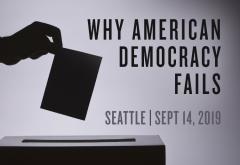“The simplest way to make the world richer,” lectures Robert Guest of the open-borders Economist magazine, “is to allow more people to move. Yet the politics of migration has never been more toxic,” he laments.
While extolling endless migration to the West, in the same, November 16th-22nd issue, the magazine depicts a world beset by unrest:
“It is hard to keep up with the protest movements under way around the world. … only the global unrest of the late 1960s was similar in scope.”
The writers point to a movements that “seem strikingly unconnected and spontaneous.”
The Economist, moreover, agrees that it is almost impossible to impose “a pattern on these seemingly random events”—in Lebanon, a tax on WhatsApp; in Hong Kong, “proposed laws allowing the extradition of criminal suspects to China”; in Britain, Brexit, in affluent Chile a sense of inequality.
Inching slowly toward stating the truth, it is eventually conceded that the global unrest is affecting “well-functioning democracies” as well.
In fact, “a related phenomenon [in the unrest equation] is the weakening of the bargain at the heart of Western-style democracy—that losers, who may represent a majority of the popular vote, will accept rule by the winners until the next election. The millions on the streets do not accept the patience that trade-off demands.”
“A weakening of the bargain at the heart of Western-style democracy” why? Because flooding western democracies with foreign people has created societies that share no bonds other than the quest to extract as much as possible from the political process.





